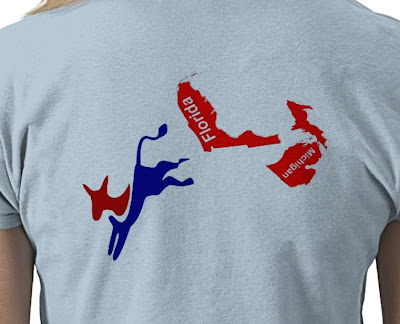It's about time... yet another reason that I'm glad Mr. Harper is our Prime Minister.
Native leaders praise apology'We are sorry,' PM says in five languages
Juliet O'Neill And Tobin Dalrymple, Canwest News Service
Published: Thursday, June 12, 2008
Chris Wattie/Reuters
OTTAWA -- Aboriginal leaders hailed the Prime Minister's apology for the residential school system yesterday as a turning point in the history of relations between natives and other Canadians.
Making parliamentary history by speaking on the floor of the House of Commons, representatives of First Nations, Inuit and Metis peoples welcomed the apology, in which Stephen Harper recounted the legacy of the century-long assimilation policy that took 150,000 aboriginal children from their parents and forced them to live in schools where their language and culture were banned and where many were abused physically and sexually.
"The government of Canada sincerely apologizes and asks the forgiveness of the aboriginal peoples of this country for failing them so profoundly," Mr. Harper said. He used five languages -- Ojibwa, Cree, Inuktutuk, French and English-- to tell the estimated 87,000 living survivors of the school system and their families and communities that "we are sorry."
Assembly of First Nations Chief Phil Fontaine, who personally suffered abuse at a residential school and was one of the first to go public about it years ago, said the apology marked "a new dawn" in race relations. "I reach out to all Canadians today in a spirit of reconciliation," he declared, provoking thunderous applause and pounding drums.
Inuit leader Mary Simon also said she believed "a new day has dawned" and, like Metis leader Clement Chartier, told the survivors, MPs and others in the packed galleries of the Commons that she considered the apology a sincere one, not just theatrics.
Some politics were injected into the events when Bloc Quebecois leader Gilles Duceppe and NDP leader Jack Layton said the apology should be followed by Canada's endorsement of the United Nations Declaration on the Rights of Indigenous People. The Harper government is one of only four that have refused to sign the treaty that the previous Liberal government said it was prepared to support.
One man who immediately accepted Mr. Harper's apology was Willie Blackwater, a 53-year-old who wept through much of the 10-minute speech.
"If I am able to forgive my perpetrator, I can forgive Canada," Mr. Blackwater said after the apology, which he called sincere and very moving.
It's been more than a decade since Mr. Blackwater forgave the teacher who, for three years, regularly beat and raped him, starting when he was 10 years old, at a residential school in Port Alberni, B. C.
Mr. Blackwater was the lead plaintiff in two court cases that helped put the teacher, Arthur Plint, in prison for eight years for assaulting 31 boys and led to the Supreme Court ruling that the federal government was directly responsible for abuses at the church-run schools. A number of such court cases eventually led to a $2-billion residential school settlement, providing cash compensation to victims and a truth and reconciliation commission to record the history.
Hundreds of people watched the apology in an overflow room on Parliament Hill and on a giant television screen outdoors under the Peace Tower.
"I was greatly relieved to witness the government coming forward after many years. It's a very historical moment and I hope it's the start of a new relationship, " said Peter Garrow, director of education for the Assembly of First Nations. "It's a long time coming."
Percy Casper, 60, of the Shuswap Nation in Kamloops, B. C., said the apology was overdue.
"I'm of the third generation [of survivors] and I'm 60 years young. I only wish that my parents were around to hear this apology," Mr. Casper said. "And I only hope and pray that this man is not speaking with a forked tongue and we can work together in the future with humanity."
"An apology is a very high-level political recognition," Shawn Atleo, B. C. Assembly of First Nations regional chief, said in an interview. "We're grabbing onto some hope that it will be a moment that will lead to a better tomorrow, that the general populace is finally going to be made aware of those severely disruptive policies over generations."
Mr. Atleo said he was thankful his grandmother and father were in Ottawa "to bear witness personally."
"This is the permanent record," he said. "This is what will be told 100 years from now."
When the speeches were finished, Mr. Harper and Indian Affairs Minister Chuck Strahl took part in a smudging ceremony alongside some elders. As a smouldering dish was brought before the Prime Minister, and an elder swished the smoke toward him with a feather, Mr. Harper fanned the smoke over his head, his face and his chest, as if washing with water, and finally rested his hand on his heart.
Copyright © 2007 CanWest Interactive, a division of CanWest MediaWorks Publications, Inc.. All rights reserved.
Labels: Harper, Native Affairs
 Christian "Independent"
Christian "Independent"

















